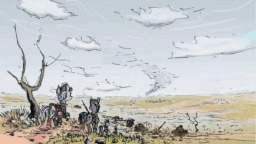
The Great War ended many years ago, but its effects live on in the ponies who fought and bled on its battlefields. A journalist interviews some of the War's greatest heroes, seeking to know the people behind the legends.
***
Memoirs of My War is written as a tribute to all veterans, but, as this Veterans Day marks the hundredth anniversary of the end of World War One, it is dedicated to the remembrance of those brave souls in particular. This story is a companion story to another military tribute of mine, Flowers of the Forest, but neither are required reading for the other. A brief overview of the "War's Generation" AU (which is canon for both) is provided here for context, but is not required for either.
As this story contains graphic imagery in certain chapters, I am placing a link to the Veteran Crisis line here, as well as links to the national suicide prevention hotline and a list of international hotlines. There is no shame in needing help. In fact, it is courageous to ask.
Cover art is "Retreat" by Ulyanovetz.
My Little Pony and its contents are the property of Hasbro, Inc. and its affiliates. Please support the official release.

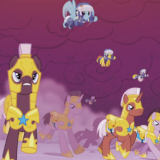





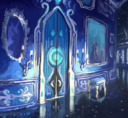



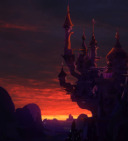
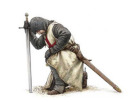

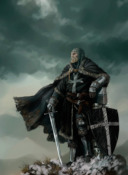





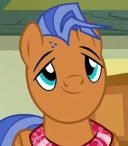


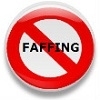

This was a good chapter, I'm interested to see what other perspectives we get. My only question is how a group suffers 200% casualties? Maybe I'm misunderstanding the statistic, but I thought 100% would be the most possible.
9287180
Casualties include wounded. And if a unit has people transfer into it to backfill those who are killed, the total percentage keeps going up. Thus, if a unit has, say 50% killed, and they all get replaced, and then (of the new total) 50% get killed, the unit is said to have 100% casualties.
9287180
Statistically, a lot of USAAF bomber groups had a higher casualty rate than Japanese kamikaze pilots.
You figure that a fighter pilot has a 50/50 shot at winning, only 1 in 32 lives to become an Ace. (& that doesn't count groundfire). The odds shift then, because you've got to be GOOD to live through that. But, again, statistically most of their future kills will be pilots w fewer than 5 kills
Also, being shot down isn't necessarily fatal. IIRC, Richthofen was shot down twice before being killed (& that was possibly groundfire)
The purpose of war is to destroy your enemy's ability to do you harm. This holds true ranging from a contest between individuals, all the way up to intercontinental strife. Destroy your enemy's ability to do you harm.
The methods thereof can be political, emotional, economical, agricultural, even geographical. But it usually comes back to destructive force. General Sherman had the right idea, bring the war to a swift end by ruining the enemy's economic capacity to support themselves. Destroy your enemy's ability to do you harm. Similar to this is the concept of blitzkrieg, the strategy of devastating an opponent before they can prepare or react.
But this must be considered beyond the bounds of the immediate war. Destroy your enemy's ability to do you harm. Twilight had the right of it, the surest way to defeat your enemy is to make him your friend. The Treaty of Versailles did not lessen the threat, it inflamed it and ensured vengeance. The cessation of war does not mean the cessation of conflict, much the opposite in fact.
Thus you must either give aid to your former enemy, taking care to foster correct thinking and good relations, or impose the Pax Romana. Put the boot to the enemy's neck and stifle their culture for the period of three generations. Their grandchildren will grow up in your schools, speaking your language, living your culture. Destroy your enemy's ability to do you harm. Thus may an enemy be pacified, by making them either friends or citizens.
9287938
Succinctly put and quite accurate. Clausewitz would approve. Befriend or destroy. The Equalists were simply fortunate that the Equestrians are the merciful sort.
As always, Mr. Antiquarian, you do not disappoint. Great first chapter!
On a personal side note, Dash's behavior reminds me of a Marine I know.
9288212
Thank you. And, fittingly enough, it reminds me of a Marine I know too.
https://www.deviantart.com/ardail/art/Please-Don-t-Leave-Me-772269318
9289239
A fitting image.
https://www.bing.com/videos/search?q=lyrics+pack+up+your+troubles+in+your&&view=detail&mid=6976C20E3184D762C5016976C20E3184D762C501&&FORM=VRDGAR
This is one of the most optimistic songs of the war.
The author later committed suicide
Of course Pinkie Pie would throw parties so great that they cause enemy soldiers to defect. She's Pinkie Pie.
9289335
A fitting song for her.
It is truly tragic about Felix Powell, though.
Hello, Antiquarian. I see that you have published yet another quality story, expertly capturing both the bright side of war ― as bright as it can be anyway ― and the dark side.
The tone of this story reminds me of a quote that left an impression on from one of the books I've read:
"War must be, while we defend our lives against a destroyer who would devour all; but I do not love the bright sword for its sharpness, nor the arrow for its swiftness, nor the warrior for his glory. I love only that which they defend."
ー Faramir, The Two Towers, Book Four, chapter V: "The Window on the West
Anyway, judging by the chapters you've already published and the incomplete tag, you're most likely going to cover the Mane 6 at the least. I look forward to them.
(P.S. Anyone want to take a bet on the chances of Fluttershy being a medic?)
9289369
I'd say that her very existence is an article of propaganda.
Somepony has the right idea.
An officer who knows how and when to have fun with his soldiers is way better than one with a metaphorical stick up his ass.
Equalists, eh?
And the night sky glimmers with starlight…
Pinkie Sense and artillery do seem like a terrifying combination. Almost as much as Pinkie looking at an active warzone and saying "Challenge accepted." You can't stop the Ponk.
9290802
Having lived through the Somme, Tolkien did not make such an assertion lightly.
http://www.answers.com/Q/How_many_military_personnel_does_it_take_to_support_one_combat_soldier
That's possibly because a lot of the USMC's support personnel are technically in the Navy
From a certain standpoint, Twilight isn't wrong. It's just not the kind of magic she has in mind.
9291243
Logistics. It's a lot more complicated than most people think, and these numbers show why rather eloquently. Thank you.
9291170
Ah yes, the Battle of the Somme. Even I know what that is. Its reputation precedes it; appropriate, considering it was one of the bloodiest battles of the War.
You know, the 20th century wasn't a very pleasant time to live in: two World Wars are an unwanted experience, to say the least. While other times might have been less pleasant long-term, there's nothing like a global conflict to leave an indelible mark on our history in a relatively short amount of time.
It makes me wonder how it felt, surviving the First World War only to realize that you have to live through a Second. While I expect that would make quite a few people lose their faith in humanity – and it did, as a matter of fact – it also brought out the best in others. War is a complicated and nasty thing, but not everything that comes out of it is bad. At least, that's what I believe.
On the morning of Nov. 11 1918 my father dove into a shell hole to take cover from some German shells that were incoming. Unfortunately the shell hole was from a mustard gas shell. The morning dew had brought up the residue from the shell and he got some in his mouth, armpits, and groin. Obviously he survived but that was my dads Armistice day.
Politics. Almost as nasty as war, and scarring you in places where it doesn't show.
Also, very interesting to see the diarchs took the field directly. Was that in the Great War or just conflicts before it?
9293042
How tragic! And how fortunate that he survived! That's the sort of story we don't hear enough. That's why this story is dedicated to him and his fellow veterans of the Great War - people can't be allowed to forget, and I hope that reading this will remind them to look.
9293094
Future chapters will reveal.
9293069
Thank you
9292528
The irony of the First World War is that it came in an era where people foolishly spoke of utopias - they thought that humanity's genius would wipe away all the world's ills, and that the new technology and industry and government would usher in a Golden Age. Then those same things were used to create a war of previously unknown horrors. The era that followed was one of disillusionment, nihilism, depression, and reactionary ideologies (like the Nazis and the Communists) which caused yet more suffering.
But there were some who resisted. Men like Tolkien and C.S. Lewis, who lived through the war and rejected both the utopian ideal and the nihilistic self-destruction as foolish. Life is full of both joy and suffering, and they understood that. They also understood that there was good in the world that was greater than the evil, and that it was worth preserving. We especially see the effect of the Somme in Tolkien's writing. After losing so many friends and seeing so much death, is it any wonder that Frodo asked, "How do you pick up the threads of an old life? How do you go on, when in your heart you begin to understand... there is no going back?" And yet, the theme of Tolkien's work was always that there is good in the world and that it's worth fighting for. The scene in Two Towers (ironically not in the book) where Sam tells Frodo why they're fighting capture Tolkien's message perfectly: the darkest stories where it doesn't seem like there's any hope, but then, when all seems lost, the victory comes... those are the stories that mean something.
Tolkien experienced a phenomena known as "Post-Traumatic Growth." He channeled his trauma into creation and life-giving efforts (his family; his writing) and came out healthier for having endured such suffering. It's a hopeful message for us all, I think. Suffering needn't lead only to a bad end. The greatest things we accomplish come through trials.
9293337
Utopia? Hah! 'tis no such place.
9293344
Fitting.
The Art of wartime propaganda is a beautiful and monstrous thing. It takes on a life of it's own, persisting long after you would see it dead and buried.
But it is necessary. No good man wants to kill people, no good man should. But monsters? Fiends that will ruin his land and murder his family? He will kill those, he will fight to the end to keep the wolves from his children. So the propagandist tells lies for the best of reasons, and makes monsters of foreign men.
Us and Them, Them and Us. always there are sides, and We, of course, are the better side. We are right, We are justified, Ours is the better cause. The populace must be reminded of that fact, of the nobility of our past. If one listens closely, one can almost hear the victory trumpets already. We have only to push just a little harder, a few more arms, another company of men, another shipment of food, and those craven enemies shall break and flee.
The propagandist, the politician, the demagogue. In the name of victory, what is justified? The lies will never die.
9293400
And yet propaganda need not demonize people; properly done, it can demonize an ideology without crossing that line. And, perhaps more importantly, it can build up confidence in one's own forces and the vital nature of one's own cause. There are ways to spin a tale without lying. But where is that line, and who draws it? These aren't easy answers. Keeping the populace invested in a war, even a just war, can be next to impossible. It was the iron will of Churchill that prevented the British from surrendering many times over - that requires talent and speechcraft. That's not to say Churchill was a perfect man (he wasn't), but his role was a necessary one. That's why I used Fancy for this - I figured people would be receptive to a good guy like him being placed in an unenviable situation and trying to do the right thing for his country. And I wanted them to think about what public image and morale really mean in wartime. There is no easy answer, but it needs to be considered all the same.
9293427
Possibly, ideally even. But dangerous, very dangerous. If the soldier hates his enemy's cause without feeling antipathy for the enemy himself, he may then feel sympathy. And that is disastrous for morale. The enemy is not a person, he is a thing, an abstraction. The moment he becomes a person, with a job, a family, children, he becomes far harder to kill. And we cannot fight a non-lethal war can we? The enemy certainly won't.
9293480
Hence the trickiness. To fight because you love what is behind, not because you hate what is in front. Dash's chapter touched on that some. I don't envy soldiers the challenge.
I read that in WWI, 90% of casualties were artillery (or bombs), about 90% of the remainder were machine guns & you fired your rifle rarely except when charging or being charged. (In fact, there are some anecdotes of soldiers forgetting how to fire their rifles)
WWI, about 80% casualties were military, 20% civilians. WWII the ratio was about 50/50 (including a lot from bombing raids. IDK if that counts concentration camp victims) . Modern wars are about 80% civilian in large part because armies move so fast, the civilians can't get out of the way.
WWII, medics treated everyone, so the Germans didn't deliberately try to kill them. Japan never signed the Geneva convention & deliberated targeted medics & hospitals. Of course, artillery doesn't care WHO you are.
Fluttershy has always been fastest in a crisis. During combat, she must have seemed like she was in multiple places at once.
Incredibly evocative chapter. Felt like I was there, inasmuch as I can even imagine such a situation.
Courage is not a state of being without fear. Fearlessness isn't courage, it's idiocy. True courage is being scared out of your wits, and pushing through it. To do the needful thing, because it must be done.
There’s an “a” combined with a plural there (“plugs”, to be exact). Seems that it got under your radar.
I hope that it will, Golden Crown, I hope that it will.
The price of being a leader is steep in war, when people don’t understand the kind of burden on you.
Of course Fluttershy was a medic, just as I expected. Her kindness outshined her fear, it would seem. Fitting, considering that it has always been that way when her friends are in danger.
Also, Ordos Solaris? A chivalric order, I presume, bestowed by Princess Celestia if the name suggests anything; Order of the Sun.
Oh wait, considering that the other chapters don’t have anything like that despite their very considerable heroics, I’m guessing that it’s a medical order.
9295378
Thank you
9294901
A bullet may have your name on it, but explosive ordinance is addressed "To whom it may concern."
9295412
It's more a part of her being in the Chaplains' Corps, but those are not mutually exclusive. The Hospitallers were knights, monks, and medics.
9295751
One thing that isn't clear. We talking WWI, WWII, or modern war? Because, in many ways they were VERY different.
9296020
With regards to what, specifically?
9296168
WWI, a lot of it was trench warfare & fairly static. WWII, bombers & tanks were more significant. WWII the US army was the first army in the world to be 100% mechanized supply transport. If you look at footage form Desert Storm 1, you'll see all these ruck following the tanks. & that was important. One of the reasons that the US Army stopped where it did in WWII was that they outran their supplies.
WWI, after 1914 the Western front moved slowly enough that civilians were able to get out of the way.
Also, artillery bombardments. In WWI, they'd shell, day & night with thousands of guns for days on end. It was partially why the Allies couldn't break through -the terrain was too tore up to move quickly, and the defenders could move supplies up through relatively undamaged territory faster than the Allies could move over shelled ground.
WWII, they'd learned. They shelled for an hour or 2 to try & take out specific targets & then stop. Also, bombers had advanced to the point that they could try to take out the supply routes.
One of the problems that the US Army had in Vietnam was that they were trying to do that w the Ho Chi Minh Trail. They needed to bomb a dirt road through a jungle so badly that it's carrying capacity was over 80% destroyed. For some reason, they couldn't
Russians had problems in Afghanistan because AA missiles had advanced to the point that they had to try & fight without aircover & they had problems
Also, medicine. WWI was the first war that they used antiseptic procedures in field hospital (Only took them 70 years after Lister to figure out that it was a Good Idea). By WWII, they'd advanced enough that casualties had a chance surviving an infected wound. Now, your odds of surviving being wounded are better than your chances of dying + disease no longer kills more than the enemy does.
One of my friend's father was a medic in the 142nd Airborne during The Gulf War.
When he joined, he was told there were three rules for a medic.
Rule number one was 'You can't save everyone.' Rule number two was 'Good people are going to die.'
Rule number three was 'Do absolutely everything you can to break rules one and two.'
9296198
Right. I get all that. There just seemed to be an implied question in your comment, and I wasn't sure what it was specifically.
9296236
Those are good rules. I can't even imagine the heartache of being a medic. At the same time, I suppose I also can't imagine the satisfaction of saving someone from death as only a healer can.